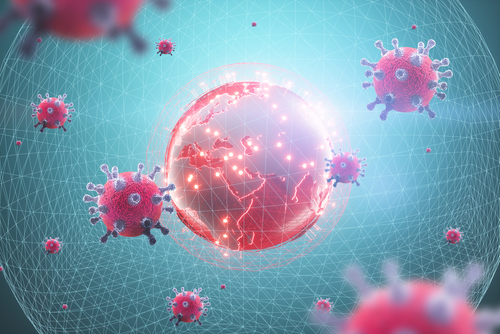Ending the pandemic requires G20 leadership
From making strong commitments and taking concrete action, to recasting economic models and addressing the megatrends exposed by COVID-19, there are many actions the G20 and its partners can take to recover from the pandemic and build a better world
In late October, I became a grandfather.
As I looked into my granddaughter Mia’s face the first time and held her tiny hand, I experienced the same wonder, joy, hope, pride and love every parent and grandparent feels.
But my joy was tinged with worry about the kind of world she will grow up in.
Although she knows nothing about it, the COVID-19 pandemic will shape that world. The question is – how?
The pandemic is the most severe health crisis in a century, but it is much more than that: it is also a social, political, humanitarian and economic crisis. Millions of jobs have been lost, the global economy is in recession and geopolitical fissures have widened.
More than 50 million cases of COVID-19 have been reported to the World Health Organization. More than 1.2 million people have lost their lives. As Europe faces an ever-escalating wave of cases, there is no telling when or how the pandemic will end.
More than 200 vaccines are now in development, including almost 50 in clinical evaluation. But once we have a safe and effective vaccine, we must also use it effectively. And the best way to do that is to vaccinate some people in all countries, rather than all people in some countries.
Through the Access to COVID-19 Tools Accelerator, WHO and partners are working to ensure that new diagnostics, treatments and vaccines are developed, produced and allocated fairly as global public goods, not as private commodities that become one more reason some people are left behind.
The ACT Accelerator is delivering.
New rapid tests are providing reliable results in less than 30 minutes, rather than hours or days, at a lower price with less sophisticated equipment. WHO and partners including the Bill and Melinda Gates Foundation have purchased 120 million of these rapid tests to be made available to low- and middle-income countries.
This will enable the expansion of testing, particularly in hard-to-reach areas with no laboratory facilities or not enough trained health workers to carry out molecular tests. This is a vital addition to their testing capacity, and especially important in areas of high transmission.
WHO has secured supplies of dexamethasone – the only medicine shown to reduce the risk of death in patients with severe COVID-19 disease – for up to 4.5 million patients in lower-income countries.
And WHO has joined forces with Gavi, the Vaccine Alliance and the Coalition for Epidemic Preparedness Innovations to form the COVAX Facility, to support the development of the world’s largest portfolio of COVID-19 vaccines and ensure that once we have a safe and effective vaccine, it is allocated equitably.
There are 186 countries and economies – including all but two G20 members – now participating in COVAX, including 94 high-income countries. This is a powerful statement of solidarity with the 92 low-income countries eligible to receive vaccines through advanced market commitments.
This is not charity. It is the fastest way for countries to end the pandemic and catalyse the global economic recovery.
The role of the G20
The G20 plays a key role.
First, several G20 members have led by example, by effectively suppressing the virus with a comprehensive approach, using the full suite of evidence-based measures. These examples show that no matter what situation a country is in, it can be turned around.
Second, G20 members including France, Germany and South Africa have been instrumental in supporting WHO to establish the ACT Accelerator. Now the world is looking to its leading economies to ensure it is fully funded. We face a financing gap of $28.5 billion and an urgent need for $4.5 billion to maintain momentum – a tiny fraction of the more than $8 trillion the world has already ploughed into economic stimulus.
Finally, although the pandemic is a serious setback to the ambitious agenda of the Sustainable Development Goals, it has also shown why they are so important. G20 members are uniquely placed to lead a renewed and urgent commitment to deliver the SDGs, and their vision of a healthier, safer, fairer and greener world.
A vaccine will help control the pandemic. But it will not fix the vulnerabilities at its roots.
A vaccine cannot address global under-investment in essential public health functions and resilient health systems, or the urgent need for a ‘One Health’ approach that encompasses the health of humans, animals and the planet we share.
There is no vaccine against poverty, hunger, inequality or misguided nationalism.
Yes, this pandemic is a severe public health crisis. But it is more than that – it’s a test of character.
Never in our time has there been a more important moment for bold and creative leadership that looks beyond the next election cycle to the world our children and grandchildren will inherit. The decisions we make now will echo for decades to come. The world is watching.












